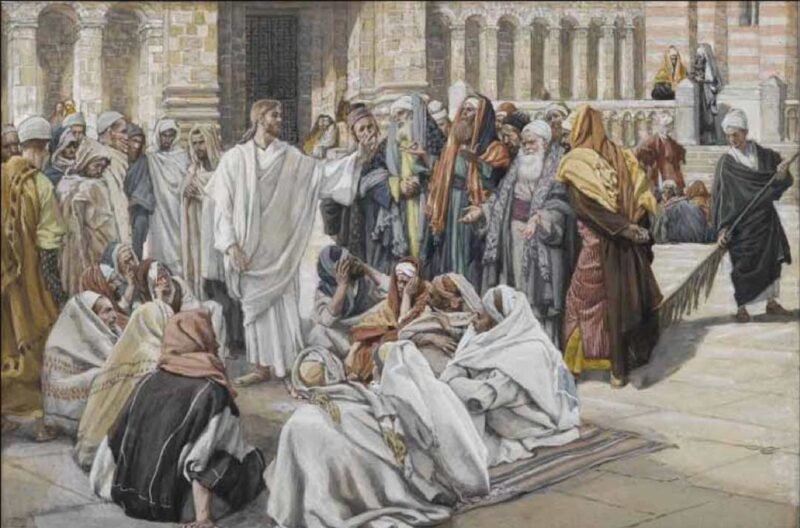“CANONICITY” and CHRIST’S “OIKONOMIA”
(Thursday, May 11)
Today’s Gospel-reading, Jn 7:14-30, includes our Lord’s conversation with those religious Jewish people, His own people, who sought to kill Him because He was breaking their rules about the Sabbath. Christ had healed the man at the Pool of Bethesda on the Sabbath, and then had the man get up, take up his bed, and walk. This healing scandalized the religious authorities of that time, so it was *divisive*. It even led the religious authorities, as I mentioned above, to seek to kill.
“Why do you seek to kill Me?” Christ asks these people, – but they deny it and say, “You have a demon. Who is seeking to kill You?” Then our Lord tries to explain to them that the law of Moses was never meant to forbid doing good on the Sabbath; for example, the rite of circumcision, also ordained by God, was done on the Sabbath. “If a man receives circumcision on the Sabbath,” He says, “so that the law of Moses should not be broken, are you angry with Me because I made a man completely well on the Sabbath? Do not judge according to appearance, but judge with righteous judgment.”
This conversation reminds me of our present-day discussions about the “canonicity” of the Ukrainian autocephaly. Critics of the autocephaly often point to the fact that it is *divisive* and that it breaks certain rules of church-administration that they hold dear. But doesn’t it “make well” those who needed it, to return to communion with the broader Church? It does appear *divisive*, but as we can see above, divisiveness in and of itself is not a sign that it is a bad thing, not for followers of a Lord Who was and remains *divisive*. He calls us to serve and seek the good of one another, according to His way, according to His “oikonomia” or His kind of “house rules,” which intend the Sabbath for man, and not man for the Sabbath. “Do not judge according to appearance,” He says to us today, “but judge with righteous judgment.”






